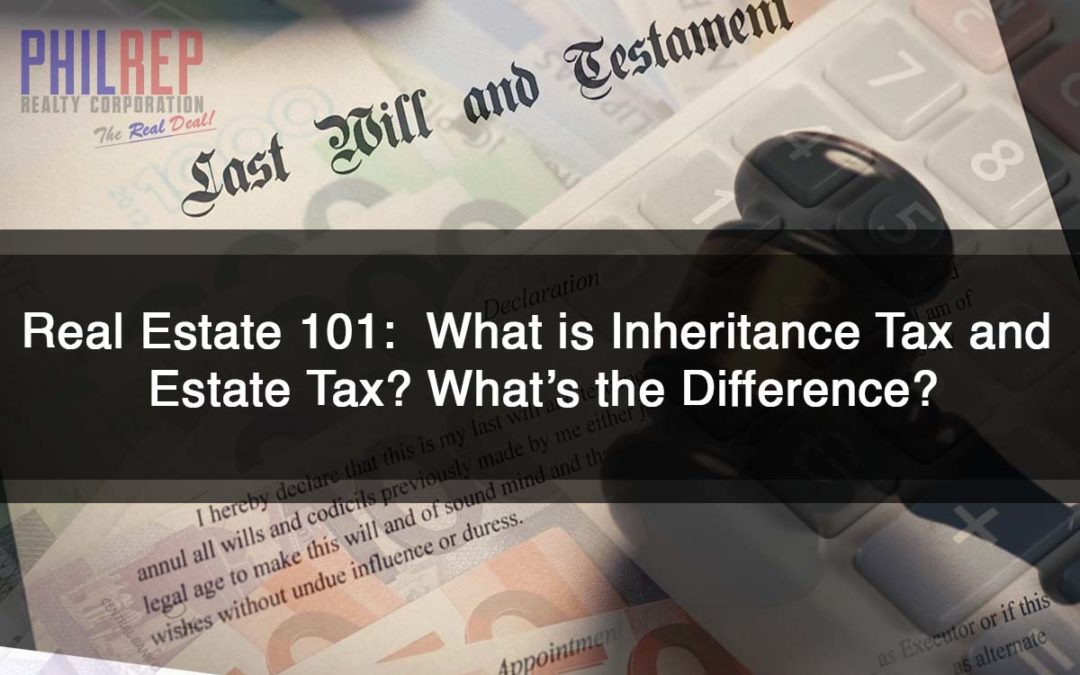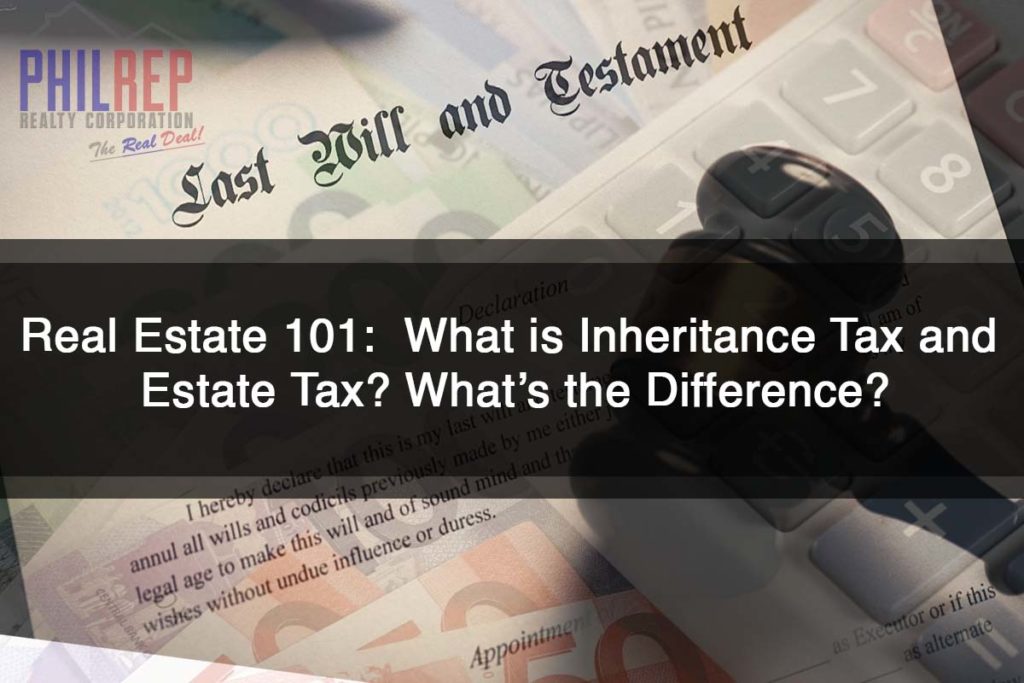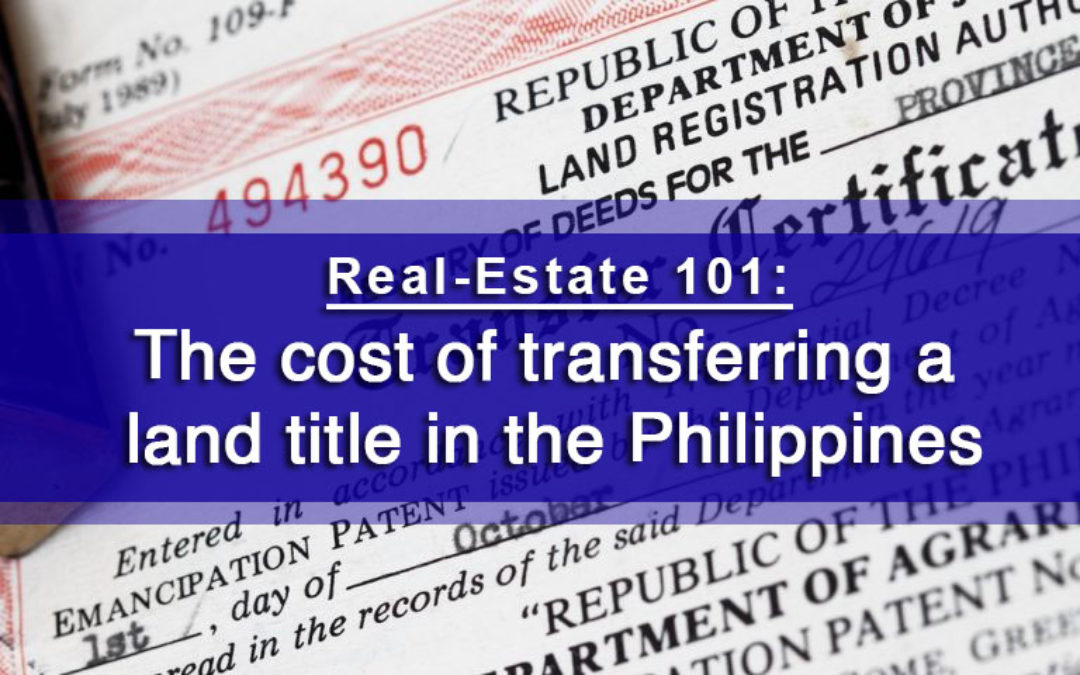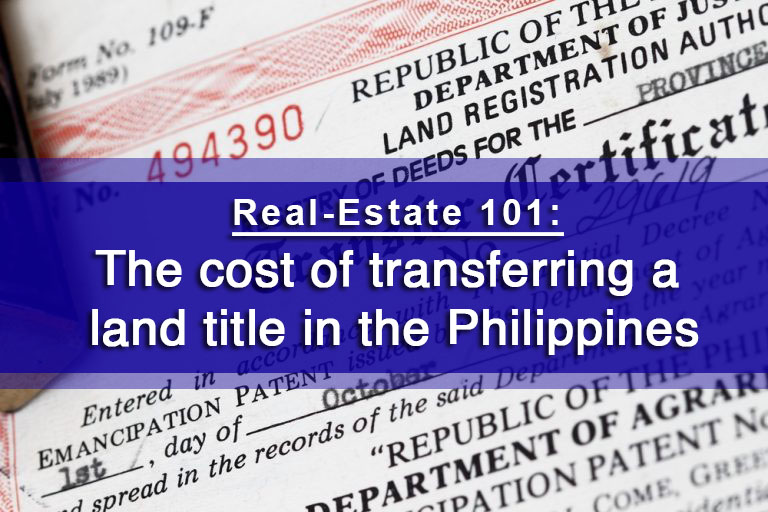
by Doah Sto. Tomas

Project Selling and General Brokerage Comparison
You’re determined to break into the real estate industry. Good for you! But as you learn more about the industry, you hear terms like Project Selling and General Brokerage and wonder if there’s really a difference. We’ve created a simple table below to help you decide where you really think you are better suited. Here’s a breakdown of the difference between the two:
In this table, we focus first on the differences from the perspective of an agent:
| Salesperson – Project Selling |
Salesperson – General Brokerage |
| If working for a developer, they are usually referred to as “in-house agents” |
Normally referred to as “property specialists” or “real estate salespersons” (if PRC-licensed) |
| Generally given an allowance |
Generally, earns on commission basis only |
| Usually assigned a sales quota |
Normally does not have a sales quota |
| Works in an office with regular working hours |
Flexible working hours. Can work in an office or from home (depending on the arrangement with the broker or realty corporation) |
| Can either be regular or contractual employees |
Generally, no employee-employer relationship exists between the agent and the broker |
| Work is normally limited to selling. Documentation and transfer of titles is done by the developer |
Generally more experienced than in-house agents as they know how to take care of the documentation and registration for the buyer and seller. |
|
If assigned to a broker working for a specific developer (i.e. an in-house broker), agent is usually limited to selling property of the developer only.
If assigned to a broker that works for (or owns) a realty corporation that is accredited with multiple developers, agent can sell properties of developers the broker is accredited with (i.e. “sell-all”)
|
|
Entitled to commissions
|
| If under an in-house broker, commission rate is dictated by the developer.If under a “sell-all” broker, commission rate will vary per developer |
Rate is dependent on agreed arrangement with broker (rates are usually higher) |
| Must obtain DHSUD ( formerly known as HLURB) accreditation, regardless if agent is doing project selling or “sell-all”. |
Not required to obtain DHSUD ( formerly known as HLURB) accreditation as long as properties being handled are FSBO (For Sale By Owner). Otherwise, both broker and agent must secure accreditation in order to do project selling. |
| Must be assigned to a licensed broker in order to be able to sell properties |
| Under RESA law (RA 9646), a person can only be called a “real estate salesperson”, if they obtain a PRC (Professional Regulation Commission) license and is assigned to a licensed broker |
Next, let’s look at project selling and general brokerage from a broker’s point of view:
| Broker – Project Selling |
Broker – General Brokerage |
| Must pass the broker’s licensure exam in order to be PRC-licensed. Once the license has been issued by the PRC, the broker will be able to operate and manage a real-estate business, aside from selling and/or leasing properties. |
| Must undergo continuing professional education (CPD) courses |
| Answerable to the Real Estate Code of Ethics as required by the PRC |
| Must obtain DHSUD ( formerly known as HLURB) accreditation, regardless if broker is doing project selling or “sell-all”. |
Not required to obtain DHSUD ( formerly known as HLURB) accreditation as long as properties being handled are FSBO (For Sale By Owner). |
| If working for a developer, can only sell property of the developer.If working for a realty corporation accredited with multiple developers, can sell all properties the realty corporation is accredited with. |
Can sell / lease all types of properties.
In the case of project-selling, the broker (or realty corporation) should be accredited by the developer(s). |
| Usually assigned a sales quota |
Normally does not have a sales quota |
| Works in an office with regular working hours |
More flexible, can work from home. May optionally maintain an office if the broker owns the realty corporation. |
| Brokers have more freedom with their work arrangement with the developer or realty corporation.Does not have any employer-employee relationship with in-house agents. |
Generally, no employee-employer relationship exists between the broker and the agents |
| Work is normally limited to selling. Documentation and transfer of titles is done by the developer. |
More experienced than in-house agents/brokers in terms of general knowledge in real estate, as they know the required documentation and registration procedures for both the buyer and seller. They are more exposed to dealing with the BIR, the Assessor’s office, and the Registry of Deeds. |
| Entitled to commissions. Cannot share commissions with unlicensed real estate practitioners but can only give a “referral fee” instead. |
| If an in-house broker, commission rate is dictated by the developer.If a “sell-all” broker, commission rate will vary per developer |
Commission rates are typically anywhere from 3% to 5%. |
| Cannot use the salesperson of another broker without prior consent of the broker the agent is currently accredited with. |
Hopefully, this will give you a better idea where you would like to focus on. Some people like to have a narrow focus in what work they do. If you fall under this category, maybe project selling is better for you as a start, or if you simply want to get your feet wet in the real estate industry. But if you like to have variety in what you work with, and like taking on challenges, then general brokerage may just be up your alley.

by Doah Sto. Tomas

Real Estate 101: What is Inheritance Tax and Estate Tax? What’s the Difference?
There’s an old saying that’s been used countless times in movies and TV. The line goes something like, “There are two things you cannot escape in life: Death and Taxes”. In some countries, this is even referred to (colloquially) as “Death Taxes”. Definitely dark humor, but in reality, it has a ring of truth to it.
A large number of people work very hard to secure a good future for their loved ones and provide for all their needs. They may also hope to leave some kind of lasting legacy when the inevitable end comes. It can take many forms such as real estate, money, personal belongings of value (e.g. family heirlooms, jewelry, paintings, cars), or various assets that can be passed on to loved ones. This is all fine and good. Until the time comes for the lawful heirs to come claim their inheritance. This is when taxes rear their ugly head (as if the passing of a loved one wasn’t hard enough).
Anyone who has inherited something from someone who passed away by way of being included in a will may be required to pay inheritance tax. But before we can proceed, we need to define first what is meant by “estate”. Someone’s estate can include property, as well as everything else of value the deceased party owned at the time of death.
Inheritance Tax vs Estate Tax
Simply put, inheritance tax is a tax imposed by the government on the beneficiary of the inheritance (i.e. The person(s) receiving the asset or estate). This is in no way tax levied on the property itself, but rather, it is a tax on the transmission (or turn-over) of the estate of the deceased to one or more heirs. One of the most common questions that arise is “who pays the inheritance tax?”. Some countries put the sole responsibility of paying the inheritance tax on the lawful heirs, while the estate tax is paid out from the estate’s funds. However, in the Philippines, they are one and the same. From this point forward, we will be using Inheritance Tax and Estate Tax interchangeably since they really mean the same thing under Philippine law.
For example, if several beneficiaries are the recipient of a particular property (let’s say an office building), inheritance or estate tax will be computed for each beneficiary. This means that each beneficiary is responsible for paying for their own tax.
The estate tax return must be filed with the Bureau of Internal Revenue (BIR) if the gross value of the estate (consisting of registered property, vehicles, shares of stock, jewelry, money, etc.) has a gross value of more than Php200,000. That being said, it may actually make more sense to distribute inheritance before the time of death (which can sometimes be tricky, because death doesn’t abide by anyone’s schedule)
Non-resident inheritance tax
If any of the heirs are non-residents (i.e. migrate to another country), they also need to file an estate tax return. If the executor of the will lives in the Philippines, the estate tax return can be filed with an authorized agent bank of the specific Revenue District Office (RDO) where the executor lives. However, in case there is no executor in the Philippines, for example if the deceased was not a Philippine resident, then the tax return should be filed under the jurisdiction of RDO No. 39 South Quezon City.
How is inheritance tax computed?
So now we delve into the computation of the inheritance tax. The inheritance tax is computed against the net value of the assets included in the estate. The net value is sometimes referred to as the “gross estate”, which refers to all property including real property, personal property, tangible property (such as bonds or shares of stock), or intangible property (such as patents, trademarks or copyrights). Also. This is computed using the Fair Market Value (FMV) at the time of death. FMV is the reasonable price at which one could sell the estate to an interested buyer.
Since we already discussed non-resident inheritance tax, let’s also consider the possibility that the deceased wasn’t living in the Philippines (a non-resident, or not a Philippine citizen) at the time of death. Only the part of the gross estate that is situated in the Philippines is considered taxable.
This tax must be settled within six (6) months from the date of death before distribution of the inheritance to the beneficiaries can proceed. Otherwise, the beneficiaries may face penalties, unless an extension is granted by the commissioner. If you could prove to the commissioner that payment by the due date would impose undue hardship on the estate or any of the heirs, the due date could be extended up to 5 years if the case is settled through courts, and up to 2 years, if handled extrajudicially. In the Philippines, a graduated tax rate determines inheritance taxes. Estates with a net value of less than Php 200,000 are exempted from paying inheritance tax while those valued at a higher amount may be required to pay a tax rate of anywhere from 5% up to 20%. In general, late payments incur a 25% initial penalty and accrue 20% annual interest on the amount. If any fraud is involved, the amount leaps to 50%.
Is there any way to reduce the amount of inheritance tax?
This is another common question asked by beneficiaries of an estate. The most common method is to apply as many deductions on the inheritance tax as possible. This will lower the FMV of the estate, which can help put the value of the estate at a lower tax tier or threshold. It is always a good idea to examine which deductions can be applied to the estate. Below is a short list (i.e. not comprehensive) of deductions that might be applicable:
| Deduction |
What is this? |
| ELIT (Expenses, Losses, Indebtedness, and Taxes) |
Funeral expenses, other claims against the estate, judicial expenses of interstate proceedings, unpaid mortgages, claims of the deceased against insolvent individuals |
| Transfers for public use |
The amount of all bequests, legacies, devises or transfers to or for the use of the Philippine Government, or any political subdivision thereof, for exclusively public purposes |
| Family Home |
The lower number between the family home’s FMV or Php 1 million, and the family home must be certified by the barangay captain of the locality |
| Standard deduction |
The amount of Php 1 million |
| Medical expenses |
Expenses incurred by the deceased within a year prior to their death, which has to be supported with receipts, for a maximum deduction of Php 500,000. |
Estate Tax Amnesty
One of the most recent developments regarding tax amnesty at the time of this writing is the Tax Amnesty Act signed by President Rodrigo Duterte. This provides a 2-year period for taxpayers to settle estate tax obligations through a tax relief over properties with outstanding tax estate liabilities. The Tax Amnesty Act started on June 15, 2019, and will cover the unpaid estate taxes of any decedent who passed away on or before December 31, 2017.
Those with unsettled estate taxes starting from January 2018 to date can still benefit from the Estate Tax Amnesty through the amendments made under the TRAIN Law. It states that a tax rate of 6% will be imposed on the total net estate value of the decedent.
Useful Links:
Tax Amnesty Act – https://www.officialgazette.gov.ph/2019/02/14/republic-act-no-11213/
TRAIN Law – https://www.bir.gov.ph/index.php/train.html

by Doah Sto. Tomas

“The ultimate measure of a man is not where he stands in moments of comfort and convenience but where he stands in times of challenge and controversy.” – Martin Luther King Jr.
The POGO Exodus
COVID-19 has been dubbed “the great equalizer”. It doesn’t distinguish between rich or poor, good or evil, young or old, the powerful and the weak, nor does it care about national borders or governments. It is simply a virulent, invisible force of nature that has spread to nearly every corner of the modern world as we know it. Unceremoniously shutting down big and small businesses and companies alike. The pandemic has impacted nearly all industries where human contact and interaction is an essential part of daily operations. And the gaming and amusement industry is no exception to this.
You may ask, what does this have to do with the real-estate industry? It has been no secret that the Philippines, through the PAGCOR (Philippine Amusement and Gaming Corporation) has welcomed POGOs (Philippine Offshore Gaming Operators) with open arms despite being a controversial or touchy subject matter for a lot of Filipinos. The government has touted the country as an ideal destination for online casinos due to. According to PAGCOR, there are 56 PAGCOR-licensed POGOs as of June 2019. And it has been estimated that at least 30 POGO firms are operating illegally in the Philippines. In fact, 265 Chinese nationals were arrested as the result of a raid of an illegal gambling operation in Las Pinas City on May 15, 2020. The illegal POGO was operating out of a rented hotel, even despite the pandemic and quarantine lock-down.
POGOs have come to the Philippines in droves bringing with them thousands of Chinese nationals that operate the lucrative offshore gambling businesses. This huge influx of Chinese nationals of course needed somewhere to stay, and the real estate industry was suddenly rife with opportunity as POGOs started snatching up properties in close proximity to their operations so they could quickly ferry their employees to work. Not only that, a study by KMC Savills Inc. has revealed that POGOs have utilized an estimated 800,000 square meters (or 8,600,000 square feet) of office space to house their operations.
This proved to be a big opportunity for those in the real estate industry. Chinese POGOs were willing to pay higher than the normal rate to lease property in locations near their operations. Property owners were now more than happy to lease out their property with preference for Chinese nationals working at POGOs. However, the downsides would soon rear its ugly head.
Those living in exclusive subdivisions now suddenly had a growing community of noisy Chinese nationals as their neighbors. Complaints and horror stories of property damage began to increase as a significant number of the Chinese nationals apparently had little respect for the property they were living in, as well as a general lack of household cleanliness and regard for property upkeep. Another sad by-product of the POGO real estate gold rush was the artificial shortage of property for Filipino families looking for fairly priced property. Rumors about local tenants being evicted or their lease not being renewed in order to give way to Chinese nationals started to spread as well.
Fast forward to March 21, 2020. In a bid to combat the Covid-19 outbreak, the PAGCOR orders all gambling operations to cease operations until further notice. Needless to say, POGO operations suddenly ground to a screeching halt. Except for those operating illegally, all legitimate POGOs found themselves in a bad financial situation. Gambling operations typically run 24×7 and thereby employs a large number of employees. Now these employees are unable to go to work due to the government-imposed quarantine measures. Surprisingly, PAGCOR even went so far to suspend work-at-home setups for those under their jurisdiction to ensure compliance. POGO licenses and services providers found to be non-compliant now faced possible cancellation of their license and accreditation, and will be reported to the authorities. On top of this, POGOs are currently under scrutiny for unpaid taxes with the BIR (Bureau of Internal Revenue), as well as controversies surrounding a growing number of “sex-dens” servicing foreign workers.
The pandemic in the Philippines still appears to be nowhere near “flattening the curve” as experts put it. To date, at least two POGOs have already left the country and more are now poised to leave the Philippines according to PAGCOR Chairperson and CEO Andrea Domingo. An unspecified number of POGOs have also filed for the cancellation of their licenses, while others have yet to file their official exit. PAGCOR claims that the primary reason for this is not just the impact of the pandemic, but due to “more appealing tax rates” and “friendlier environments” as decision-makers behind the POGOs re-evaluate their options.
With all of this in mind, the most likely scenario is that POGOs are on their way out. And with them goes the potential for cashing in on significantly higher lease rates. Just barely a year ago, POGOs overtook BPOs (Business Process Outsourcing) in real estate utilization and contributed over 6.4 Billion Pesos in taxes. Now, it is only a matter of time before the POGO real estate deep well dries out.

by Doah Sto. Tomas

The cost of transferring a land title in the Philippines
We will be bringing you a series of articles that discuss commonly asked questions regarding real estate in general. One of the most commonly asked questions we encounter whenever we conduct trainings and orientation seminars for those interested to get into the real estate industry is “How much does it cost to transfer the land title”?
Buying property is generally considered one of the biggest steps a person can take in life, typically due to the large amount involved. But unlike other purchases that one can make, real estate is not something you can normally have by paying for in one quick transaction. Along with the property’s price are other expenses that come as part of the purchase. In this respect, the most important is perhaps the cost to transfer the land title.
For buyers or sellers, transferring the land title can prove to be a challenging experience. The paperwork involved and the fees that need to be paid can be daunting for first timers. With that said, let’s start off by discussing the fees associated with purchasing property. Let’s start off with the cost of transferring the land title. This fee needs to be paid whenever property is purchased, sold, donated or inherited. Having the land title under your name is very important as it serves as your proof of ownership of the property, regardless if you are a buyer, a donee or an heir. The absence of this document can lead to the ownership of your property being disputed. Therefore, it is imperative that you ensure the correct processing of this document. And one of the ways to ensure this is to pay all the required fees and taxes.
The following are the fees and taxes that you need to be aware of. The amount of these fees and taxes are based on how much the property cost at the time of the transaction or transfer:
- Any Unpaid Real Estate Taxes due – always check if the property you are buying has any unpaid real estate taxes particularly if you are buying property directly from the owner
- Capital Gains Tax (CGT) – this is computed as 6% of the selling price specified on the Deed of Sale or the Zonal value, whichever amount is higher
- Withholding Tax – this only applies when the seller of the property is a corporation (e.g. a land Developer)
- Transfer Tax (Local Treasurer’s Office) – this is tax imposed on the sale, barter, or any other method of transferring of the ownership or title of real property, at the maximum rate of 50% of 1 percent of a property’s worth (in the case of cities and municipalities within Metro Manila, this is 75% of 1 percent)
- Transfer Tax (BIR) – Transfer taxes may also be owed to the Bureau of Internal Revenue. If the property was donated, the Transfer Tax is in the form of Donor’s Tax. If the property was transferred via inheritance, this is in the form of estate tax.
- Documentary Stamp Tax – this is commonly set at 1.5 percent of the selling price, or the zonal value or fair market value, whichever is higher.
- Registration Fee – commonly set at 0.25 percent of the selling price, or zonal value or fair market value, whichever is higher.
- Commission of the Agent and/or Broker
- Incidental and miscellaneous expenses – typically any expense incurred in the registration process, such as notary fees, etc.
The total amount of all these fees and taxes is the cost of transferring a land title. As you can see, all these fees and taxes can quickly add up.
Now, closely related to this topic is another question often asked immediately afterwards: “Who should shoulder the Land Title Transfer expenses?”
The common practice in the Philippines is that the seller is responsible for the following:
- Capital Gains Tax
- Withholding Taxes
- Any unpaid real estate taxes that are due
- Commission of the Agent and/or Broker assisting in the completion of the transaction
The buyer on the other hand, takes care of the following:
- Documentary Stamps
- Transfer Taxes
- Registration Fees
- Incidentals and miscellaneous expenses incurred in the registration process
This arrangement is considered standard practice. But in other cases, the buyer and seller can also mutually agree on who pays for what during the negotiation period, when the Deed of Sale (a.k.a. Deed of Absolute Sale) has not been signed yet. This document shows the legal transfer of real estate property ownership and is submitted to the Registry of Deeds for filing after the buyer pays the Documentary stamps, transfer tax and registration fees for the aforementioned Land Title Transfer.
As you can see, the entire process and everything involved can prove to be very burdensome to both buyer and seller. Since most buyers are willing to pay millions to buy property, it is sometimes worth it to engage a company that specializes in land title transfers in order to take the burden away from the buyer and seller. This also ensures that the transfer is done correctly and completely.

by Doah Sto. Tomas

With the rise in cybersecurity threats and data breaches, companies have been advising people to turn on multi-factor authentication (MFA). This basically involves using more than one method of authenticating a user.
For example, a website may require you to enter your username and password, then send an SMS message to the mobile phone number you specified during registration. The code in the SMS message is randomly generated hence the term One-Time-Password (OTP). You need to enter the OTP in order for you to gain access to the website.
Likewise, mobile banking apps on your phone also implement MFA by requiring you to enter your username and password, then also send you the OTP (usually on first time access). They also normally require the use of OTP for transaction that involve payments, fund transfers, or any changes to your user account info.
Sounds like a very secure way of doing transactions right? Someone would need to steal your phone (or your SIM) in order to obtain your OTP in order to impersonate you and perform transactions in your name. This is basically a form of IDENTITY THEFT.
Scammers and crooks have always been busy trying to find ways of defeating the latest security measures. The latest wave of identity theft goes by several names. Some call it the SIM swap scam, others call it SIM splitting fraud. But whatever name you prefer to call it, here is some of the common ways the scam is committed:
- Someone claiming to be a Telco representative offers you a SIM upgrade. All you need to do is turn in your old SIM card so they can replace it with a new SIM card with upgraded features. Unless you’re actually at the Telco branch talking to the customer sales representative sitting behind the desk, do not surrender your SIM! The moment you surrender your SIM card, these crooks now have access to your OTP and can start attempting to change your user account information so they can eventually make fraudulent transactions.
- Another way this scam is performed is with the help of someone within the Telco company itself. There have been stories of Telco staff participating (either willingly or unwillingly) to illegally provide duplicate SIM cards to criminals organizations and scammers.
- Some may even go to the Telco branch and claim to be you and report your SIM card as missing and request for a replacement SIM card.
Regardless of the method, the end result can be devastating for you and your family. Your entire life savings or retirement fund can be wiped out should you fall for this scam!
To combat this kind of criminal activity and fraud, the following tips may prove to be a life-saver:
- Needless to say, ALWAYS turn on MFA on all your mobile devices
- If available on your device, use biometric (i.e. fingerprint or facial recognition) authentication
- Regularly change your password (every 90 days is a good interval)
- Always use long complex passwords that only you can remember. If you love eating ice cream, an example of complex password can be “Ic3Cre@mSunda3!”
- If you don’t like remember many passwords, you can use a password manager so that it will take care of generating complex and randomized passwords for each website you visit, and you will only need to remember the master password. Don’t take our word for it, check out this list of recommended password managers: https://tinyurl.com/y7vuowqa
At the end of the day, knowledge about these scams and vigilance on our part will be our weapons against these criminal elements that want to steal your hard-earned money!

by Doah Sto. Tomas

If you are trying to get back on your feet amidst the GCQ, then here are a few ways to get clients in the new normal!
Build A Website
The new normal requires social distancing, and with non-essential businesses temporarily closed due to the government mandate for self-quarantine measures to be in effect, having a website is one of the best ways to get your listings out. We know this can be a bit daunting for most people, so we’ll post more articles to help you get started building your website, so stay tuned! For now, let’s concentrate on the advantages of having your own real-estate website:
1.) Accessibility
Once you have your website up and running, your properties can be viewed by endless potential clients from all over the world. It is readily accessible, and it can be easily shared online. The properties you sell can be seen conveniently and gain interest from various people. But what if getting your website up and running is currently not feasible right now? What other options do you have to get the word out online that you’re in the real-estate business? The next best thing is to leverage something that is already there and already accessed by millions of people worldwide, and that is Social Media! Don’t worry, we’ll get to that in a minute.
2.) Credibility
With a website, you can build your online credibility and even establish your brand, if you’re inclined to do so. Building credibility is very important for Brokers and Agents alike. Having good credibility builds trust with your client and can help you land good deals and in turn, potential get more buyers through positive word-of-mouth.
To establish a good business and personal relationship with your clients, it is advisable that you start focusing on specific projects or areas. Having a focus project or area allows you to concentrate on learning all about that specific project or area. The whole point of this is to become very familiar with the project to the point where you can call yourself a subject matter expert (SME). Being an SME means you can talk about a project in detail with your potential clients and answer their questions with confidence. This builds up your image with your buyers because this shows them that you know exactly what you are talking about.
3.) Management
With your own website, you have complete control over what you post, and when you post it. This means you now have the ability to keep all your listings up to date. An updated inventory gives you the advantage of finding the right home for your client. This can be very advantageous if you are focusing on high-end properties. Depending on the number of properties you advertise, this can be also pose a challenge as well.
Use Social Media
Having your own website out of the question for now? You can use social media as your platform! It’s quick and easy to set up!
1.) Advertisements
Take advantage of the various free social media sites such as Twitter, Facebook, LinkedIn, and Instagram to advertise your listings and garner attention. These platforms are often used by the general public, and when properly utilized, can spread your name or your company’s name in a very short period of time. You also have the option of boosting your posts in social media. On most social media platforms, boosting your post is quite affordable, but your mileage may vary of course. It is always better to build your online reputation first by creating useful and informative posts on these platforms so that people start to take notice of you and hopefully share your posts with their circle of friends and acquaintances. Think of this as a positive word-of-mouth endorsement.
2.) Relevancy
Social media apps are available to almost everyone with Internet access, so it helps you stay relevant in the public’s eye. Using these sites can help you expand your reach in advertising your properties and also get your name out to interested clients. It is important to let your presence be known because the more people that know you, the more they think about your business. Try to keep your posts always relevant to real-estate so that your social media profile because better associated with the real-estate industry.
3.) Branding
If you want to be able to differentiate yourself from the rest of your competitors, you should establish your brand. This is a great way to establish name-recall and show your specialization to your clients. You can brand yourself as a property consultant, but that also makes you responsible for keeping yourself up to date on everything affecting real estate. This means always reading the latest news and trends from reputable sources. Doing this gives your clients the confidence that they are getting the best advice on their real estate concerns.
Learn Video/Photo Editing and Production
You need to be competitive online. It is inevitable that you need to learn and understand what makes a video or picture effective in attracting potential buyers. It’s a given that potential clients will want to see what you’re selling. After all, everyone wants to see what they’re paying for!
1.) Visual Appeal
It is important for listings to be appealing to clients. It either creates a good or bad impression on them. Often buyers tend to not stick around a property which looks dark, cluttered, and unorganized. It also shows how the quality of the estate, whether the condition is fit for them to live in or not. It pays to learn more about the basics of taking an appealing photo of real-estate properties. We will tackle this in future articles.
2.) Perspective
Basic knowledge on selecting a good visual perspective of a property will help make your property more appealing to potential clients. It will also help make your listing more visually informative, providing your buyer with a better understanding of the estate.
3.) Image and Video size
This is a bit on the technical side, but you want to keep the file size of your images and videos small enough so they load quickly but still retain a decent visual quality so they don’t come out as blurry or pixelated. We will be posting more on this topic soon, so stay tuned for our future articles!
Knowledge on Your Property
1.) Be Knowledgeable
This is very important in the field of Real Estate. The last person a buyer wants to talk to is someone who doesn’t have the basic information readily available. Having extensive knowledge on the property you are selling can help clients make decisions faster (i.e. close the sale). Also, being able to answer their questions quickly and effectively shows your seriousness in helping them make an informed decision. You might now end up closing the deal now, but this will leave a positive impression on your client and can potentially result in a future sale or referral.
2.) Customer Care
It is important to assume that you are not the only one a buyer is talking with. Most clients shop around first in order to compare offers from properties that they are interested in. Potential clients often go for the agent or broker who provides the best knowledge and customer care. Show the customer you are not just in it for the commission, but you are providing them a valuable service by acting as an investment adviser of sorts so they can make the best decision with their money.
3.) Landing the Deal
If you have great familiarity and knowledge on your properties, you can cater to your buyer’s needs effectively. You can also provide alternatives or better options to fit their tastes when looking through listings, thus helping them find their dream home or investment opportunity.
“Dahil sa new normal, kailangan natin gumawa ng paraan para maka-adapt sa ating bagong sitwasyon. Wala sa edad ‘yan, lahat tayo puede matuto, basta palagi natin isipin na kakayanin natin.”












